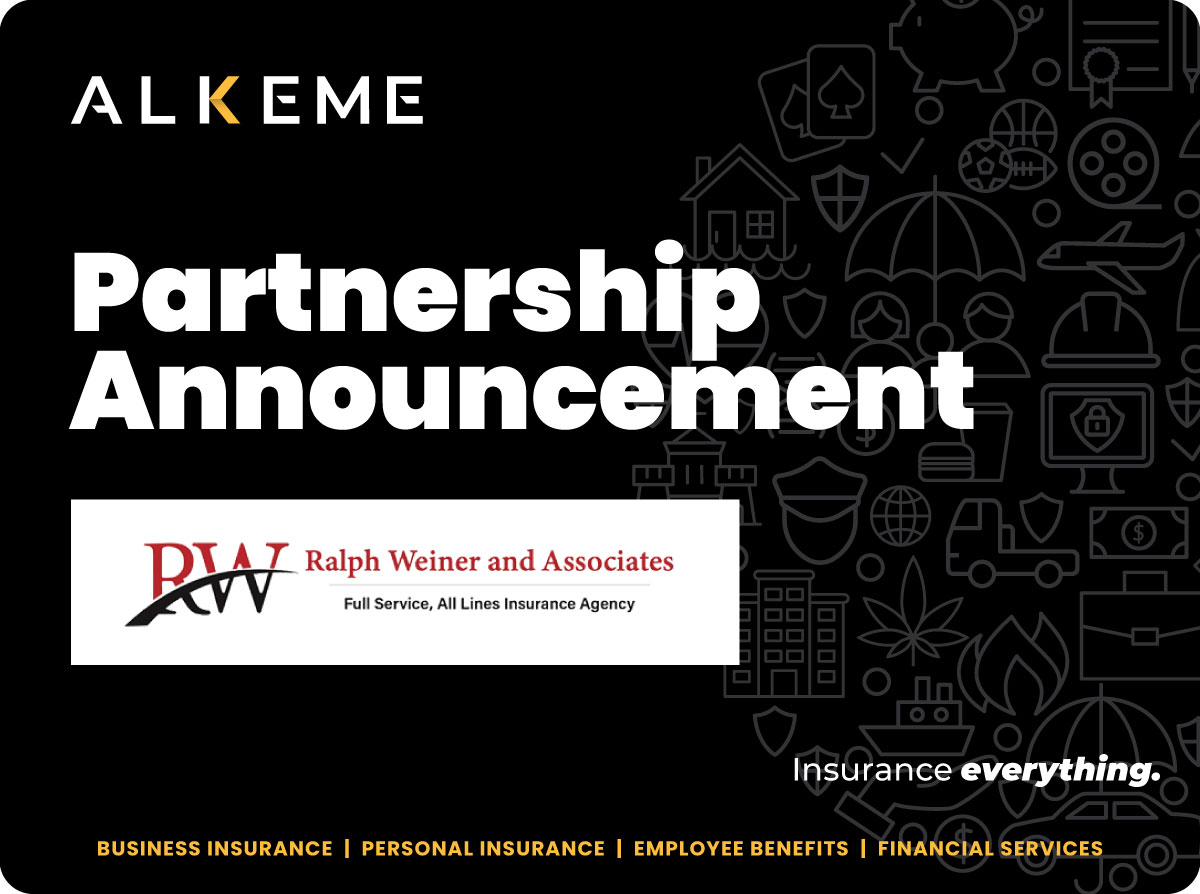These five insurance policies collectively form a comprehensive risk management strategy for amusement parks, addressing the diverse array of potential liabilities and ensuring financial protection against unforeseen events.
- General Liability Insurance
- Property Insurance
- Commercial Umbrella Insurance
- Business Interruption Insurance
- Cyber Liability Insurance
1. General Liability
Importance of General Liability Insurance
- Coverage for Bodily Injury:
Amusement parks are inherently dynamic environments where visitors engage in various activities, including rides and attractions. General liability insurance is crucial for covering bodily injury claims that may arise from accidents or incidents within the park. Whether it’s a slip and fall, collision, or any other mishap, this coverage ensures that medical expenses, legal fees, and potential settlements are addressed.
- Protection Against Property Damage Claims:
In the event that a visitor’s property is damaged within the amusement park premises, general liability insurance provides coverage for property damage claims. This can include damage to personal belongings, such as cameras or smartphones, ensuring that the park is financially protected against such liabilities.
- Legal Coverage for Personal Injury Claims:
Personal injury claims, including allegations of defamation, false arrest, or invasion of privacy, can arise in the context of amusement parks. General liability insurance offers legal coverage for such claims, protecting the park from potential lawsuits and associated legal expenses.
Add-ons to General Liability Insurance:
- Product Liability Coverage:
Given that amusement parks often offer a range of products, including merchandise and food items, adding product liability coverage to the general liability policy is advisable. This extension ensures protection against claims related to defective products that may cause harm or injury to visitors.
- Spectator Liability Coverage:
For amusement parks with live shows or performances, spectator liability coverage is an important add-on. This addresses potential injuries or incidents involving spectators during events, providing additional protection beyond the standard general liability coverage.
- Employee Practices Liability Insurance (EPLI):
EPLI is essential for addressing claims related to employment practices, such as wrongful termination, discrimination, or harassment. Amusement parks with a workforce should consider adding EPLI to their general liability policy to mitigate the risks associated with employment-related legal challenges.
Exclusions to Be Careful Of:
- Professional Liability Exclusion:
Amusement parks should be cautious of exclusions related to professional liability. While general liability covers bodily injury and property damage, it may exclude claims related to professional services. If the park offers services such as entertainment consulting or event planning, a separate professional liability policy may be necessary.
- Intentional Acts Exclusion:
Some general liability policies may exclude coverage for intentional acts. While accidents are typically covered, intentional harm caused by an employee or third party may not be covered. Parks should be aware of this exclusion and consider additional coverage if needed.
- Pollution Exclusion:
Pollution exclusions may be present in general liability policies, and amusement parks should carefully review these exclusions. In the event of environmental incidents or pollution-related claims, specific environmental liability coverage may be required to address potential liabilities.
2. Property Insurance
Importance of Property Insurance for Amusement Parks:
- Protection Against Physical Damage:
Amusement parks invest heavily in rides, attractions, buildings, and equipment. Property insurance is crucial for safeguarding these physical assets against various risks, including fire, vandalism, natural disasters, and accidents. In the event of damage, property insurance helps cover the costs of repairs or replacements, ensuring the park can quickly recover and resume operations.
- Business Continuity:
Property insurance plays a vital role in ensuring business continuity for amusement parks. In the event of a covered peril leading to property damage, the insurance coverage helps mitigate the financial impact by covering ongoing expenses and loss of income during the period when the park is temporarily closed for repairs.
- Coverage for Equipment and Attractions:
Amusement parks are filled with complex machinery, rides, and attractions. Property insurance extends coverage to these critical components, protecting against damage or breakdowns that could result in significant repair or replacement costs. This coverage is essential for maintaining the operational integrity of the park.
Add-ons to Property Insurance:
- Equipment Breakdown Coverage:
Given the reliance on complex machinery and equipment in amusement parks, adding equipment breakdown coverage is advisable. This extension covers the costs associated with repairing or replacing essential equipment that breaks down due to mechanical or electrical failure, helping to minimize downtime.
- Inland Marine Insurance:
Inland marine insurance is important for covering property that moves within the amusement park or during transport. This can include items like mobile rides, equipment in transit, or property temporarily located outside the park premises. Inland marine insurance ensures comprehensive coverage for movable assets.
Exclusions to Be Careful Of:
- Flood and Earthquake Exclusions:
Standard property insurance policies often exclude coverage for damage caused by floods or earthquakes. Amusement parks located in areas prone to these natural disasters should consider purchasing separate flood and earthquake insurance to ensure comprehensive protection.
- Wear and Tear Exclusion:
Property insurance may exclude coverage for damage resulting from wear and tear, deterioration, or gradual deterioration. Parks should implement regular maintenance practices and be aware of exclusions related to pre-existing conditions to maintain coverage effectiveness. - Acts of Terrorism Exclusion:
Some property insurance policies may have exclusions related to acts of terrorism. Given the potential impact of such events, amusement parks may want to explore terrorism insurance to ensure coverage in the event of terrorist acts causing property damage.
3. Commercial Umbrella
Importance of Commercial Umbrella Insurance for Amusement Parks:
- Additional Layer of Financial Protection:
Commercial umbrella insurance is essential for amusement parks as it provides an extra layer of financial protection beyond the limits of primary liability policies. In the event of a catastrophic incident leading to substantial claims, a commercial umbrella policy ensures that the park has sufficient coverage to address liabilities that exceed the limits of its general liability, auto liability, or employer’s liability policies.
- High-Potential Liability Claims:
Amusement parks often face the potential for high-value liability claims, especially in the case of accidents involving multiple individuals or severe injuries. Commercial umbrella insurance becomes invaluable in such situations, covering the costs that surpass the limits of primary liability policies and preventing financial strain on the park’s resources.
- Comprehensive Liability Coverage:
While primary liability policies like general liability provide essential coverage, they may have coverage limits that could be quickly exhausted in the event of a major incident. Commercial umbrella insurance ensures a more comprehensive and extended coverage umbrella, encompassing a broader range of liabilities and offering financial protection against unforeseen and substantial claims.
Add-ons to Commercial Umbrella Insurance:
- Excess Auto Liability Coverage:
If the amusement park operates a fleet of vehicles for transportation or shuttle services, adding excess auto liability coverage to the commercial umbrella policy is advisable. This extension provides additional coverage in the event of a major accident involving park-owned vehicles, ensuring that potential liabilities are adequately covered.
- Liquor Liability Coverage:
For amusement parks that serve alcohol, liquor liability coverage is crucial. This add-on to the commercial umbrella policy protects the park against liabilities arising from alcohol-related incidents, such as accidents or injuries caused by intoxicated guests. It complements the general liability coverage and provides an extra layer of protection.
- Contractual Liability Coverage:
Amusement parks often enter into contracts with vendors, contractors, or other entities. Contractual liability coverage as an add-on to the commercial umbrella policy ensures that liabilities arising from contractual agreements are covered. This is particularly important in situations where the park assumes responsibility for certain risks through contractual arrangements.
Exclusions to Be Careful Of:
- Intentional Acts Exclusion:
Commercial umbrella insurance may have exclusions related to intentional acts. While it typically covers accidents and unintentional occurrences, acts committed with intent may not be covered. Amusement parks should be mindful of this exclusion and ensure that intentional acts are adequately addressed in other areas of their risk management strategy.
- Non-Covered Underlying Policies:
Commercial umbrella insurance is designed to sit atop underlying liability policies. Parks should carefully review the terms and conditions of their primary liability policies to ensure that the commercial umbrella policy seamlessly integrates with and covers all aspects of their liability exposures. Gaps in coverage could arise if the underlying policies have exclusions that are not addressed by the umbrella policy. - Failure to Maintain Required Underlying Limits:
Some commercial umbrella policies may require maintaining specific underlying liability limits. Failing to meet these requirements could result in reduced or voided coverage. Amusement parks should regularly review and adjust their primary liability policy limits to align with the requirements of the commercial umbrella policy.
4. Business Interruption Insurance
Importance of Business Interruption Insurance for Amusement Parks:
- Financial Protection During Temporary Closures:
Business interruption insurance is crucial for amusement parks as it provides financial protection in the event of temporary closures due to covered perils such as fire, natural disasters, or other unforeseen incidents. This coverage compensates for the loss of income during the period when the park is unable to operate, ensuring financial stability and the ability to cover ongoing expenses.
- Coverage for Fixed Costs and Operating Expenses:
During a business interruption, the park incurs fixed costs and operating expenses even when revenue is not being generated. Business interruption insurance helps cover these costs, including rent or mortgage payments, utilities, salaries, and other ongoing financial obligations. This ensures that the park can weather the financial impact of disruptions without risking long-term stability.
- Facilitating a Smoother Recovery:
The financial support provided by business interruption insurance facilitates a smoother recovery process for amusement parks. It allows the park to focus on repairing or rebuilding damaged infrastructure without the immediate pressure of lost income. This, in turn, expedites the return to normal operations once the necessary repairs or renovations are completed.
Add-ons to Business Interruption Insurance:
- Extended Business Interruption Coverage:
Amusement parks should consider adding extended business interruption coverage to their policy. This extension prolongs the coverage period beyond the initial restoration of normal operations, providing additional time for the park to regain its pre-interruption financial stability.
- Contingent Business Interruption Coverage:
Contingent business interruption coverage is essential for parks that rely on third-party suppliers or vendors for key components of their operations. This coverage extends protection to losses incurred due to disruptions in the supply chain or business relationships, ensuring that the park is covered even if the interruption originates from a partner or supplier.
- Civil Authority Coverage:
Parks may face interruptions due to government actions, such as evacuation orders or road closures, even if the park itself is not directly affected by a covered peril. Civil authority coverage adds an extra layer of protection by compensating for losses resulting from these government-imposed interruptions, providing financial support during unforeseen external mandates.
Exclusions to Be Careful Of:
- Uncovered Perils:
Business interruption insurance is typically triggered by specific covered perils outlined in the policy. Amusement parks should carefully review and understand these perils to ensure that potential causes of interruption are included. Common covered perils include fire, natural disasters, vandalism, and other named events.
- Waiting Periods:
Some business interruption policies may have waiting periods before coverage takes effect. Parks should be aware of these waiting periods and consider the potential financial impact during the initial days or weeks of an interruption. Adjusting waiting periods based on the park’s specific circumstances may be advisable.
- Inadequate Coverage Limits:
Insufficient coverage limits can leave amusement parks exposed to significant financial gaps during a business interruption. Parks should regularly reassess their coverage limits to ensure they align with the evolving financial needs and potential losses associated with the park’s operations.
5. Cyber Liability Insurance
Importance of Cyber Liability Insurance for Amusement Parks:
- Protection Against Cyber Threats:
Amusement parks increasingly rely on digital systems for ticketing, reservations, and overall operations. Cyber liability insurance is crucial for protecting against the financial consequences of data breaches, cyberattacks, or other cyber incidents. This coverage extends to costs associated with notifying affected individuals, legal expenses, and regulatory fines. - Safeguarding Guest Information:
Amusement parks collect and store sensitive guest information, including personal details and payment data. In the event of a cyber breach, this information becomes vulnerable to theft or misuse. Cyber liability insurance helps cover the costs associated with notifying affected guests, providing credit monitoring services, and addressing legal liabilities arising from the exposure of sensitive information. - Legal Defense and Regulatory Compliance:
Cyber liability insurance plays a crucial role in covering legal defense costs and regulatory fines that may arise following a cyber incident. In the aftermath of a data breach or cyberattack, amusement parks may face legal challenges, investigations, and penalties from regulatory authorities. Cyber liability insurance ensures that the park has financial support to navigate legal proceedings and comply with regulatory requirements, mitigating the potential financial impact of legal actions and regulatory sanctions.
Add-ons to Cyber Liability Insurance:
- Ransomware Coverage:
As ransomware attacks become more prevalent, having specific coverage for ransomware is essential. This add-on helps cover the costs associated with negotiating and paying ransom, as well as any expenses related to restoring systems and data affected by the attack. - Reputation Management Coverage:
A cyber incident can damage the reputation of an amusement park. Reputation management coverage as an add-on helps cover expenses related to public relations efforts, crisis communication, and marketing strategies aimed at restoring the park’s image following a cyber event. - Social Engineering Fraud Coverage:
Social engineering attacks, such as phishing schemes, can trick employees into transferring funds or disclosing sensitive information. Adding coverage for social engineering fraud ensures financial protection against losses resulting from fraudulent schemes that manipulate individuals within the park’s organization.
Exclusions to Be Careful Of:
- Prior Acts Exclusion:
Some cyber liability policies may have a prior acts exclusion, which means that incidents that occurred before the policy’s retroactive date are not covered. Amusement parks should carefully review this exclusion to ensure that past cyber events do not leave them without coverage. - Inadequate Employee Training Exclusion:
Cyber liability insurance may exclude coverage if the park fails to implement adequate cybersecurity measures or provide employee training. Parks should prioritize cybersecurity education for employees to mitigate the risk of this exclusion. - Unapproved Third-Party Access Exclusion:
Exclusions related to unauthorized third-party access may limit coverage if a breach occurs due to the actions of vendors, contractors, or other third parties. Amusement parks should ensure that their cyber liability policy adequately addresses the risks associated with third-party access.




